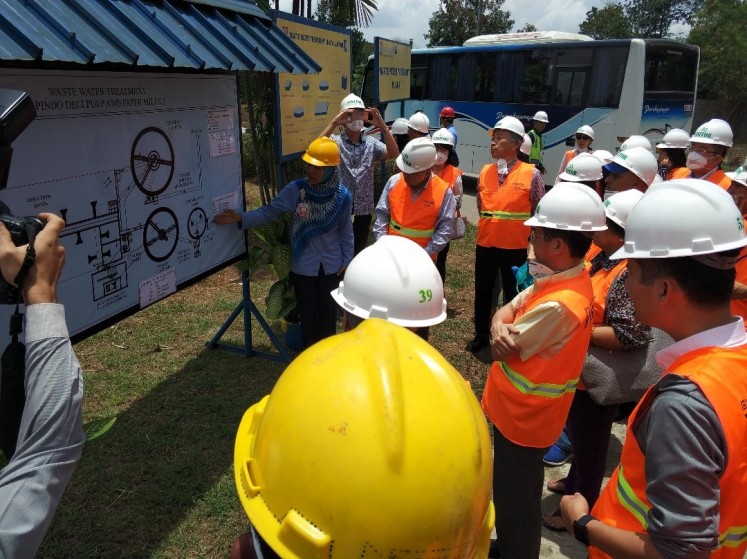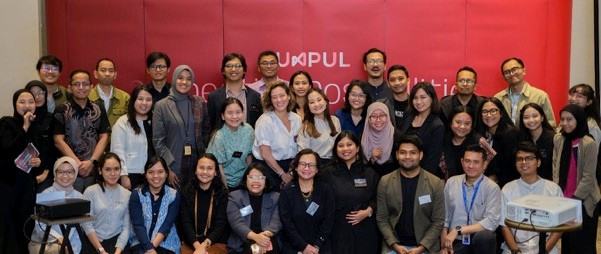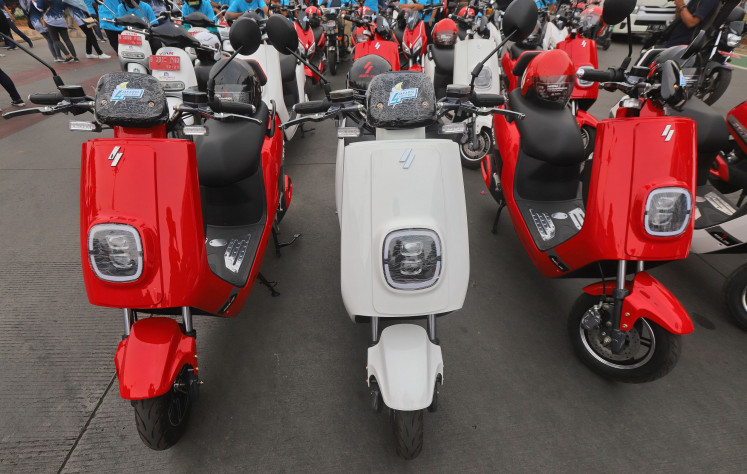Ministry studies APP Sinar Mas’ waste management system
Change text size
Gift Premium Articles
to Anyone

R
epresentatives from the Environment and Forestry Ministry as well as delegates from the Water Environmental Partnership in Asia (WEPA) have studied the waste management system installed by Asia Pulp & Paper (APP) Sinar Mas’s manufacturing center at the PT Pindo Deli II factory in Karawang regency, West Java.
The inspection, conducted on Sept. 28, was part of the 13th Annual Meeting of the Water Environment Partnership in Asia. This year, the forum was conducted from Sept. 26 to 28 in Jakarta.
The ministry representatives as well as the delegates chose to visit this particular factory because of its outstanding waste management system; the factory has proven able to meet the capacity requirements for industrial wastewater management.
In recognition of its achievement in setting a high standard for wastewater management in Indonesia, two ministries have given awards to PT Pindo Deli II in 2016. The Environment and Forestry Ministry bestowed upon it the Proper Award in the green category for the huge capacity of the factory’s waste management system, which exceeds the requirements set by the government. In the same year, the Industry Ministry gave the factory the highest award in the environmental impact mitigation category in the ministry’s annual Green Industry Awards.
WEPA is an initiative proposed by the Japanese Ministry of the Environment in 2003 at the third World Water Forum held in Kyoto, Shiga and Osaka in Japan, aiming at improving the maritime environment in Asia by strengthening environmental governance. The forum became official in 2004.
WEPA has also been actively involved in developing an internet-based information platform covering wastewater management in its partner countries, including Cambodia, China, Indonesia, Japan, South Korea, Laos, Malaysia, the Philippines, Thailand and Vietnam.
“We responded positively to the site visit to demonstrate our continuous efforts to protect the environment surrounding this industrial compound [through a proper waste management system],” PT Pindo Deli II factory head Hendri Gunawan said.
The site visit was conducted on the final day of the forum. The first day of the forum featured an international workshop on industrial waste management. The second day featured a meeting involving various stakeholders, such as the government, industrial players and scholars.
Contacted on the sidelines of the site visit, the head of the inventory and pollution sub directorate at the Environment and Forestry Ministry’s Directorate General of environmental damage and pollution, Budi Kurniawan, said the annual WEPA meeting was an important platform for stakeholders to exchange knowledge about various aspects of water and waste management – like policies, regulations, technicalities, monitoring and supervision.
Homework

To maintain a proper waste management system, factories and industrial compounds have to engage in constant efforts to overcome the challenges involved in the complex task.
According to Budi, the most difficult part in waste management is to ensure efficiency in water utilization. “We need to reduce the use of water [to make it more efficient]; this automatically reduces the amount of waste produced [by factories and industrial compounds],” he explained.
To overcome the challenge, PT Pindo Deli II strives to constantly innovate to create breakthroughs that can further refine their system. The factory targets a decrease in water use in production processes by 20 to 25 percent this year.
“PT Pindo Deli II will constantly boost its water utilization efficiency, including through water recycling and the proper treatment of wastewater, to fulfill the government’s standardized requirements on the quality of wastewater treatment,” he said.









